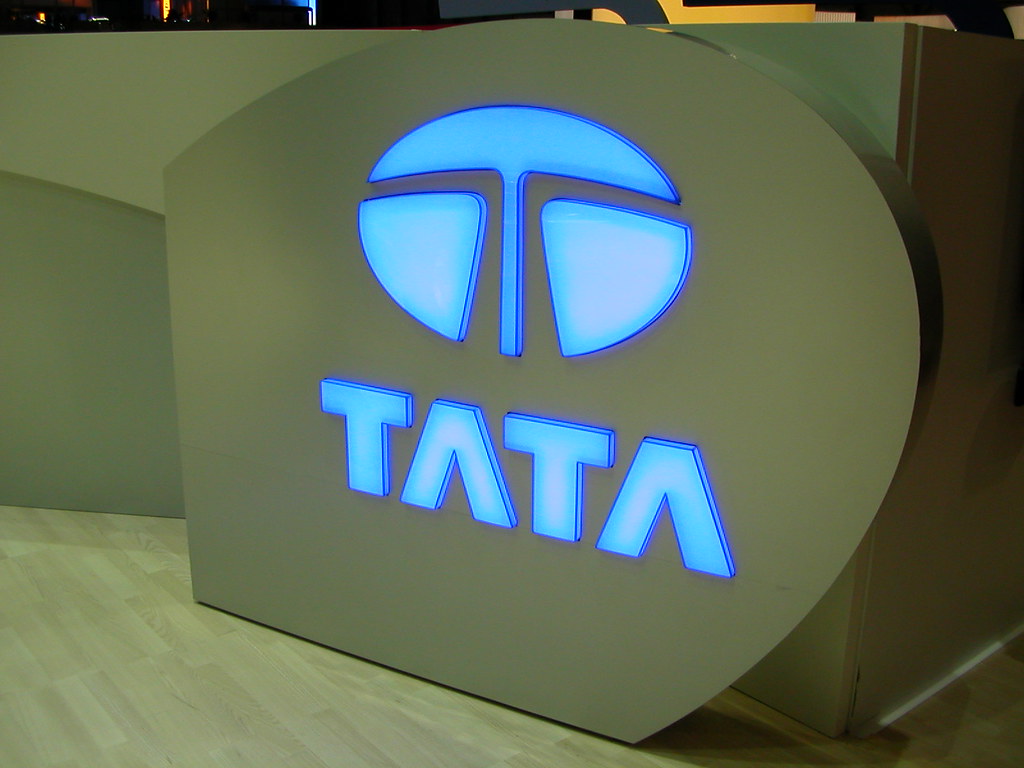The Tata Group One of India’s Largest Conglomerates – The Tata Group is one of the largest and most diverse conglomerates in India, with interests ranging from steel, automotive, and hospitality to technology, energy, and telecommunications. Founded in 1868 by Jamsetji Tata, the group has grown into a global enterprise with a presence in over 100 countries and a workforce of more than 750,000 employees. In this article, we’ll take a closer look at the history, structure, and operations of the Tata Group, and explore some of its notable achievements, challenges, and future prospects.
Table of Contents
- Introduction
- Early History of the Tata Group
- Diversification and Expansion
- Business Segments and Subsidiaries
- Tata Steel
- Tata Motors
- Tata Consultancy Services
- Tata Power
- Taj Hotels
- Corporate Social Responsibility and Philanthropy
- Challenges and Controversies
- Future Outlook and Growth Strategies
- Conclusion
- FAQs
1. Introduction
The Tata Group is a multinational conglomerate based in India that operates across a wide range of industries, including steel, automotive, information technology, hospitality, energy, and telecommunications. The group has a long and storied history that dates back to the late 19th century, and it has become synonymous with excellence, innovation, and social responsibility.
2. Early History of the Tata Group
The Tata Group was founded in 1868 by Jamsetji Tata, a visionary entrepreneur who believed in the power of industry and innovation to transform India’s economy and society. Tata started out as a textile merchant, but he soon expanded into other areas, such as banking, steel, and hydroelectric power.
One of Tata’s most notable achievements was the establishment of the Tata Iron and Steel Company (TISCO) in 1907, which was the first integrated steel plant in Asia. TISCO played a key role in India’s industrialization and helped to make the country self-sufficient in steel production.
3. Diversification and Expansion
Over the years, the Tata Group has diversified and expanded its business interests, both within India and abroad. Today, the group has over 100 operating companies and subsidiaries, with a combined revenue of over $100 billion.
Some of the notable acquisitions and investments made by the Tata Group include:
- The acquisition of British steelmaker Corus in 2007 for $12 billion, which made Tata Steel the world’s fifth-largest steel producer.
- The acquisition of luxury car brands Jaguar and Land Rover from Ford in 2008 for $2.3 billion.
- The establishment of Tata Consultancy Services (TCS) in 1968, which has become one of the world’s largest IT services and consulting firms.
- The launch of Tata Motors’ Nano, the world’s cheapest car, in 2008.
- The development of India’s first indigenous fighter jet, the HAL Tejas, by Tata Advanced Systems Limited.
4. Business Segments and Subsidiaries
The Tata Group operates across several business segments, each of which has its own set of subsidiaries and joint ventures. Some of the most significant business segments include:
4.1. Tata Steel
Tata Steel is the world’s sixth-largest steelmaker, with operations in India, Europe, and Southeast Asia. The company produces a wide range of steel products, including flat steel, long steel, and tubes, and serves customers in industries such as automotive, construction, and energy.
4.2. Tata Motors
Tata Motors is India’s largest automotive company and one of the world’s leading manufacturers of commercial vehicles, passenger cars, and electric vehicles. The company’s portfolio includes popular brands such as Tata Tiago, Tata Nexon, and Tata Safari, as well as commercial vehicles like Tata Ace, Tata Prima, and Tata Signa. In recent years, Tata Motors has focused on expanding its presence in the electric vehicle market, with the launch of models such as the Tata Tigor EV and the Tata Nexon EV.
4.3. Tata Consultancy Services
Tata Consultancy Services (TCS) is a global leader in IT services, digital and business solutions, and consulting. The company has a presence in over 50 countries and serves clients in industries such as banking, finance, healthcare, and retail. TCS has been recognized as one of the world’s most ethical companies and one of the top employers in the IT industry.
4.4. Tata Power
Tata Power is India’s largest integrated power company, with a capacity of over 12,700 MW and operations in renewable energy, transmission and distribution, and power trading. The company has been at the forefront of India’s clean energy transition and has set ambitious targets to increase its renewable energy capacity in the coming years.
4.5. Taj Hotels
Taj Hotels is a luxury hotel chain owned by the Tata Group, with a portfolio of over 100 hotels and resorts across India and other countries. The brand is known for its iconic properties such as the Taj Mahal Palace in Mumbai and the Taj Lake Palace in Udaipur, and has won numerous awards for its hospitality and service.
5. Corporate Social Responsibility and Philanthropy
The Tata Group has a strong tradition of corporate social responsibility and philanthropy, which is rooted in its founder’s vision of using business as a force for social good. The group has established several foundations and trusts to support education, healthcare, and community development initiatives, and has donated millions of dollars to charitable causes over the years.
Some of the notable philanthropic initiatives of the Tata Group include:
- The Tata Trusts, which is one of India’s oldest and largest philanthropic organizations, and supports initiatives in areas such as education, health, and rural livelihoods.
- The Tata Medical Center, a state-of-the-art cancer hospital in Kolkata that provides affordable cancer care to patients from all over India.
- The Tata Institute of Social Sciences (TISS), a premier research and training institute in the field of social sciences, which has produced many eminent scholars and policymakers.
6. Challenges and Controversies
Like any large conglomerate, the Tata Group has faced its share of challenges and controversies over the years. Some of the notable issues that have affected the group include:
- The dispute between Tata Sons and Cyrus Mistry, the former chairman of the group, which led to a high-profile legal battle in 2016.
- The controversy surrounding the Tata Nano, which failed to meet sales expectations and was criticized for safety issues and poor quality.
- The labor strikes and protests at Tata Steel’s plants in the UK, which led to job losses and restructuring.
7. Future Outlook and Growth Strategies
The Tata Group has set ambitious goals for the future, both in terms of business growth and sustainability. Some of the key strategies and initiatives that the group is pursuing include:
- Expanding its presence in high-growth markets such as Africa, Southeast Asia, and the Middle East.
- Investing in digital and emerging technologies such as artificial intelligence, blockchain, and cybersecurity.
- Increasing its focus on sustainability and environmental stewardship, with a target of becoming carbon neutral by 2050.
8. Conclusion
In conclusion, the Tata Group is one of the most respected and influential business conglomerates in India and the world. With a history spanning over a century, the group has diversified into a wide range of industries, including automotive, steel, energy, and hospitality, among others.
At the heart of the Tata Group’s success lies its commitment to ethical business practices, corporate social responsibility, and philanthropy. The group has been a trailblazer in many fields, from introducing the first Indian-made car to supporting healthcare and education initiatives through its various foundations and trusts.
Despite facing challenges and controversies, the Tata Group has continued to grow and expand, with a focus on sustainability and innovation. As the world economy continues to evolve and transform, it will be interesting to see how the Tata Group adapts to these changes and continues to thrive in the years to come.
9. FAQs
- What is the Tata Group?
- The Tata Group is one of India’s largest and most diversified business conglomerates, with operations in a wide range of industries such as automotive, steel, energy, and hospitality.
- Who founded the Tata Group?
- The Tata Group was founded by Jamsetji Tata in 1868.
- What are some of the notable companies owned by the Tata Group?
- Some of the notable companies owned by the Tata Group include Tata Steel, Tata Motors, Tata Consultancy Services, and Taj Hotels.
- What is the Tata Group’s approach to corporate social responsibility?
- The Tata Group has a strong tradition of corporate social responsibility and philanthropy, which is rooted in its founder’s vision of using business as a force for social good. The group has established several foundations and trusts to support education, healthcare, and community development initiatives.
- What are the key growth strategies of the Tata Group?
- The Tata Group’s key growth strategies include expanding its presence in high-growth markets, investing in digital and emerging technologies, and increasing its focus on sustainability and environmental stewardship.




